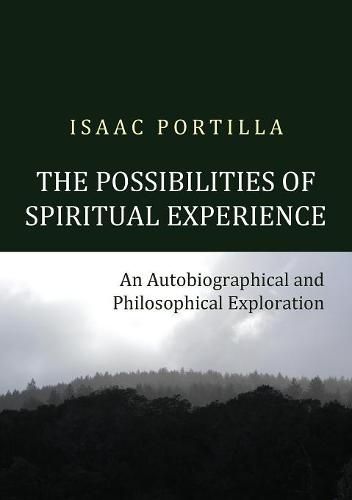Readings Newsletter
Become a Readings Member to make your shopping experience even easier.
Sign in or sign up for free!
You’re not far away from qualifying for FREE standard shipping within Australia
You’ve qualified for FREE standard shipping within Australia
The cart is loading…






This title is printed to order. This book may have been self-published. If so, we cannot guarantee the quality of the content. In the main most books will have gone through the editing process however some may not. We therefore suggest that you be aware of this before ordering this book. If in doubt check either the author or publisher’s details as we are unable to accept any returns unless they are faulty. Please contact us if you have any questions.
There are truths beyond the nirvanas and ecstasies, beyond the transcendental perspectives and the present-moment awareness, which are waiting to be recognized.
The Possibilities of Spiritual Experience brings together the four major forces in Western spiritual movements–Christianity, Buddhism, Taoism and Hinduism (including the Yogic and Advaita traditions)–acknowledging their distinctive contributions to an emerging, evolutionary and universal paradigm.
The author, based on his own direct experiences as well as those of recognized spiritual figures (Aurobindo, Ramana Maharshi, Christian mystics, and others), clarifies and gives solutions to important conundrums of contemporary spirituality, such as:
What is the value and place of the diverse mystical-spiritual experiences (e.g., types of Awakening, spiritual Baptisms, possibilities of Enlightenment, Divine Love cognition, etc.) attested by mystics and adepts of different backgrounds? Why do spiritual traditions differ in philosophy and goals (e.g., Liberation vs. Resurrection vs. Transformation)? How is it possible to accept a plausible never-ending spiritual evolution together with the notion of a final attainment or ‘full Enlightenment’? How is a personal path of regeneration compatible with the experiences of transcendence or returning to an impersonal ‘Source’?
The Possibilities of Spiritual Experience challenges both the static views of traditional spirituality and the simplistic approaches of contemporary spiritual movements, providing a path for the modernization of spirituality arguing that the science of Enlightenment [spirituality] never reached the Enlightenment Age. This book is a genuine effort to make spirituality a recognized field of science.
$9.00 standard shipping within Australia
FREE standard shipping within Australia for orders over $100.00
Express & International shipping calculated at checkout
This title is printed to order. This book may have been self-published. If so, we cannot guarantee the quality of the content. In the main most books will have gone through the editing process however some may not. We therefore suggest that you be aware of this before ordering this book. If in doubt check either the author or publisher’s details as we are unable to accept any returns unless they are faulty. Please contact us if you have any questions.
There are truths beyond the nirvanas and ecstasies, beyond the transcendental perspectives and the present-moment awareness, which are waiting to be recognized.
The Possibilities of Spiritual Experience brings together the four major forces in Western spiritual movements–Christianity, Buddhism, Taoism and Hinduism (including the Yogic and Advaita traditions)–acknowledging their distinctive contributions to an emerging, evolutionary and universal paradigm.
The author, based on his own direct experiences as well as those of recognized spiritual figures (Aurobindo, Ramana Maharshi, Christian mystics, and others), clarifies and gives solutions to important conundrums of contemporary spirituality, such as:
What is the value and place of the diverse mystical-spiritual experiences (e.g., types of Awakening, spiritual Baptisms, possibilities of Enlightenment, Divine Love cognition, etc.) attested by mystics and adepts of different backgrounds? Why do spiritual traditions differ in philosophy and goals (e.g., Liberation vs. Resurrection vs. Transformation)? How is it possible to accept a plausible never-ending spiritual evolution together with the notion of a final attainment or ‘full Enlightenment’? How is a personal path of regeneration compatible with the experiences of transcendence or returning to an impersonal ‘Source’?
The Possibilities of Spiritual Experience challenges both the static views of traditional spirituality and the simplistic approaches of contemporary spiritual movements, providing a path for the modernization of spirituality arguing that the science of Enlightenment [spirituality] never reached the Enlightenment Age. This book is a genuine effort to make spirituality a recognized field of science.